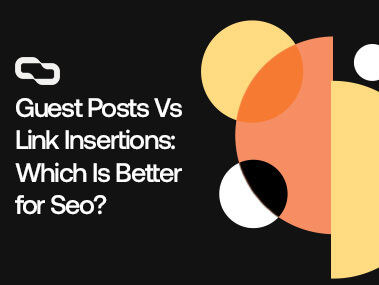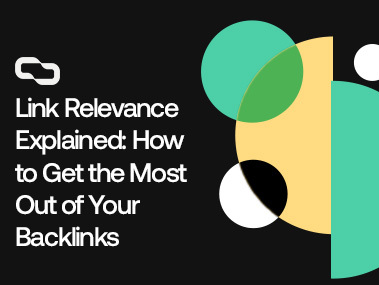International Link Building: A Comprehensive Guide For Global SEO Success
Building links for international websites is no easy task.
The link-building techniques you use for English websites won't always work in foreign markets.
However, we're here to help.
We have been helping clients with their international link-building campaigns for over 5 years now, during which, we secured thousands of high-quality international links.
And in this guide, we'll share with you everything you need to know about it.
What Is International Link-Building?
International link-building or foreign link-building is a strategy used in search engine optimization (SEO) that focuses on acquiring backlinks from websites in different countries.
This approach is particularly important for businesses targeting audiences in foreign countries or regions and wanting to expand their online presence globally.
Why Do You Need an International Link-Building Strategy?
Let's say you sell mattresses in the UK.
You realize that your products have a huge potential in Spain, so you decide to tap into this market using your favorite marketing channel --- SEO.
You start by doing some keyword research, and then you translate and localize your content for your target audience.
And you wait.
Now, let me ask you this: How would Google know that you're targeting the Spanish market?
Because it's written in Spanish, duh! --- you might answer.
Well, 21 countries in the world speak Spanish, including Spain, Mexico, Argentina, and Colombia.
To the best of Google's knowledge, you could be targeting any country of those.
And that's where international links come in.
If you're getting many links from websites in Spain, search engines would take that as a sign that your content is valuable to users in that location.
As a result, they'll rank your website higher in the Spanish search engine results pages (SERPs).
So in short, your international link-building efforts will help search engines better understand your content and rank you higher in your target country SERPs.
What Are The Benefits of International Link-Building?
1. Improved Search Engine Rankings
Search engines see backlinks as votes of trust.
If you're getting links from relevant, authoritative international websites, Google interprets it as if these sites are vouching for the quality of your content.
And the more high-quality websites vouch for you, the more Google will trust your website, and the higher they'll rank your content.
So, by building international links, you'll reach an international audience that is interested in your products and services.
2. International SEO Markets Are Less Competitive
Here's a little secret: not all SEO playgrounds are equally crowded.
When you step into international SEO markets, you might just find that the competition is a bit more, let's say, roomy.
Think about it. Many businesses focus heavily on English-speaking markets because they're more familiar or seem easier to tackle.
But this means they're all fighting for space in a very crowded room.
On the other hand, international markets, especially in languages other than English, can be like open fields waiting for you to play in.
Why is this good news for you?
Because less competition means your efforts in SEO can go further, faster, and cheaper.
You won't have to elbow your way through a dense crowd to get your site noticed.
In countries where fewer businesses are competing for the top spots in search engine rankings, your international link-building efforts can shine brighter.
3. Diverse Traffic Sources
An international link-building service can help you diversify your traffic sources, reducing dependence on a single market or audience.
This diversification can protect your business from market-specific downturns and increase the stability of online traffic.
4. Increased Brand Exposure
Building links on international websites doesn't just help with SEO.
It can significantly boost your brand's visibility and credibility on a global scale.
Each backlink from an international site is a nod to your brand's relevance and authority, not just to search engines, but to real people across the world.
As your brand gets mentioned, shared, and linked to, more people begin to recognize and trust your name.
This increased exposure can lead to more business opportunities, partnerships, and even expansions into new markets.
That's without mentioning the competitive advantage you get from international link-building campaigns.
You can get a huge chunk of the target market share by investing in an international link-building strategy earlier than your competitors.
5. Adaptability to Market Trends
International link-building can provide insights into global market trends and consumer behaviors, allowing your business to adapt its strategies proactively.
By understanding what content or products are gaining popularity in different regions, you can tailor your offerings to meet evolving consumer needs.
How to Build International Links?
1. Start with Local & Business Citations
Imagine you’re setting up a stall at an international fair.
The first thing you do?
Make sure everyone knows where you are.
That’s what local and business citations do for your website.
These are listings in online directories and business platforms that are popular in the country you’re targeting.
Begin by researching the most authoritative directories in that region—Yelp, Yellow Pages, and local equivalents. Submit your business information consistently across these platforms.
Accuracy here is key; ensure your name, address, and phone number (NAP) are uniform across listings. This consistency helps search engines trust your site, boosting your presence in local searches.
2. Create Dedicated Social Profiles
Social media platforms are a goldmine for international SEO.
For each market you enter, create social profiles tailored to that audience.
This means adjusting your language, content, and engagement times to match local preferences.
Share local news, engage with local brands, and participate in conversations relevant to your industry within that region.
These actions signal to search engines and users alike that your brand is actively participating in the local digital ecosystem, encouraging natural backlinks from local users and businesses.
3. Use Web 2.0 Sites
Leverage Web 2.0 sites as a fertile ground for your content to take root.
Create blogs, articles, and posts on platforms like Tumblr, Medium, WordPress.com, and others, tailoring your content to your international audience.
Discuss local events, industry news relevant to the region, or how your products can meet local needs.
Include backlinks to your main site where natural.
This not only helps in building backlinks but also in establishing your brand’s authority and relevance in the target market.
4. Claim Unlinked Mentions
Unlinked mentions are like hidden treasures scattered across the internet, waiting to be claimed.
Use tools like Mention, Ahrefs, or BuzzSumo to find where your brand is mentioned without a link.
Then, reach out to the site owners or editors, thanking them for the mention and politely asking if they’d consider adding a link to your site.
This process not only secures a backlink but often strengthens relationships with publishers, bloggers, and industry influencers in your target market.
5. Reverse Engineer Your Competitors
Spying on your competitors can give you a roadmap to success.
Use SEO tools like SEMrush or Moz to analyze where your competitors are getting their backlinks from.
Look for patterns or recurring sources—perhaps they frequently guest post on certain blogs, or they’re listed in specific directories.
By identifying these sources, you can target them for your backlinks, effectively piggybacking on your competitors' successful strategies.
6. Use Search Operators
Google’s search operators can help you uncover backlink opportunities hidden in plain sight.
For example, using operators like “site:.es” combined with “guest post” can reveal Spanish websites accepting guest posts.
This method requires creativity and persistence but can unearth gold mines of backlink opportunities in your target market.
Agency Tip: Draw your attention to nearby countries or ones with similar cultures and languages.
7. Delve into Link Exchanges
Link exchanges should be approached with a strategy in mind.
Look for non-competitive, complementary businesses in your target market and propose a mutual backlinking arrangement.
For instance, if you sell sports equipment, you might exchange links with a fitness blog. This practice can be beneficial when done sparingly and thoughtfully, ensuring relevancy and value to your audience.
8. Buy Media Packages
Investing in media packages can be likened to placing a well-designed advert in a prime location.
Research and identify key media outlets, online magazines, and industry publications in your target market.
Many offer packages that include articles, interviews, and advertisements that link back to your site.
While this requires budget allocation, the credibility and visibility it brings can significantly impact your international SEO efforts.
9. Make PR Campaigns
A well-executed PR campaign is like a spotlight on your brand, drawing attention from far and wide.
Craft compelling stories or news about your business that resonate with your target market.
Then, distribute your press releases through international PR services that target media outlets in your desired region.
The key here is newsworthiness; your story should be relevant, interesting, or valuable to the local audience.
This can lead to high-quality backlinks from news sites and publications, boosting your SEO and brand visibility.
10. Hire a Local Link Builder
Sometimes, the best approach is to go local.
Hiring a local SEO expert or link builder who understands the market, culture, and language can be invaluable.
They can navigate the local digital landscape more effectively, identify opportunities you might miss, and engage in outreach that resonates with the local and global audience.
Think of them as your local guide, helping you plant your brand firmly in the new market.
How to Identify Which Pages Will Benefit from Your International Link-Building Efforts?
Selecting the right pages for international link-building is like choosing the plants that will thrive best in your garden's micro-climate.
Not every page on your website will benefit equally from international backlinks.
Here's how to pinpoint the ones that will:
1. Analyze Page Performance and Relevance
Start with a thorough analysis of your website's current performance.
Use analytics tools to identify which pages attract the most traffic, have the highest engagement, and convert visitors.
Among these, prioritize pages that are most relevant to your target international audience.
These could be product pages that cater to a global market, blog posts about universal topics, or service pages that have cross-border appeal.
2. Consider Market-Specific Demand
Research your target market to understand local needs, interests, and gaps in the market.
Pages that offer solutions to these specific demands are prime candidates for international link-building.
This may require localizing content or creating market-specific landing pages that address local issues, trends, or questions.
3. Evaluate Competitor Strategies
Look at your competitors in the target market.
Which of their pages are performing well?
This can give you insights into what the local audience values.
If competitors have similar offerings, consider strengthening your equivalent pages through international link-building to compete more effectively.
4. SEO Keyword Opportunities
Use keyword research tools to find high-opportunity keywords in your target market that your website can rank for.
Pages that already rank for related terms—or could be optimized to rank for these new terms—are excellent candidates for additional link-building efforts.
5. Content Quality and Authority
Assess the quality and authority of your content.
High-quality, informative pages that position your brand as a thought leader in your industry are particularly beneficial for international link-building.
These pages attract natural backlinks because they offer value to users and other websites.
Do You Need to Build Links for Each Website?
If you operate a single global website with different language versions, your link-building efforts can be somewhat centralized.
However, building links to specific language pages or sections can help signal to search engines the relevance of those pages to specific markets.
For businesses with separate websites for each country (e.g., example.fr, example.de), a more localized link-building strategy is essential, as search engines treat them as different websites.
This means that each website should have its own link-building campaign that targets local audiences, adheres to local search engine preferences, and competes with local businesses.
FAQs
What is international link-building?
International link-building involves acquiring backlinks from websites in different countries to improve global search engine visibility and rankings.
Why is international link-building important?
International link-building is important because it signals to search engines that your content is valuable in specific international markets, improving your rankings in those regions.
Can I use my existing content for international link-building?
Yes, but it should be localized to ensure relevance and engagement with your target international audience.
How do I start with international link-building?
Begin with local and business citations, create dedicated social profiles, use Web 2.0 sites, claim unlinked mentions, and consider hiring a local link builder.
Do I need separate link-building strategies for different countries?
Yes, each country or region may require a tailored approach due to varying languages, cultures, and search engine preferences.
Is it necessary to build links for each website if I have multiple international sites?
Yes, if you have separate websites for different countries, each should have its own localized link-building campaign to effectively target local audiences.
How long does it take to see results from international link-building?
Results can vary, but typically it takes several months to see significant improvements in search rankings and traffic from international link-building efforts.
Conclusion
The world of SEO is vast and varied.
What works in one country might not work in another.
That's why professional help is invaluable.
With over 5 years of experience and thousands of high-quality international links under our belt, we’re here to guide you through every step of the process.
Whether you're looking to increase your visibility in specific countries or aiming for a broader international presence, our team is equipped to help you navigate the complexities of global SEO.
By partnering with us, you're not just getting links; you're building bridges to new opportunities, insights, and growth on a global scale.
Feel free to book a courtesy consultation call to discuss your international link-building goals.
Find out your exact cost of ranking for your dream keyword
Let’s get you ranking now
If you want the team at Get Me Links to help you get more traffic



